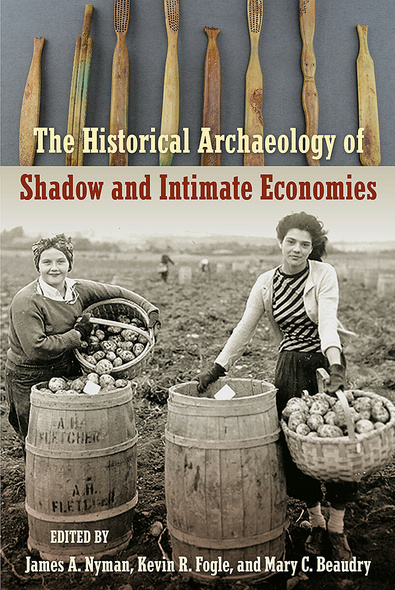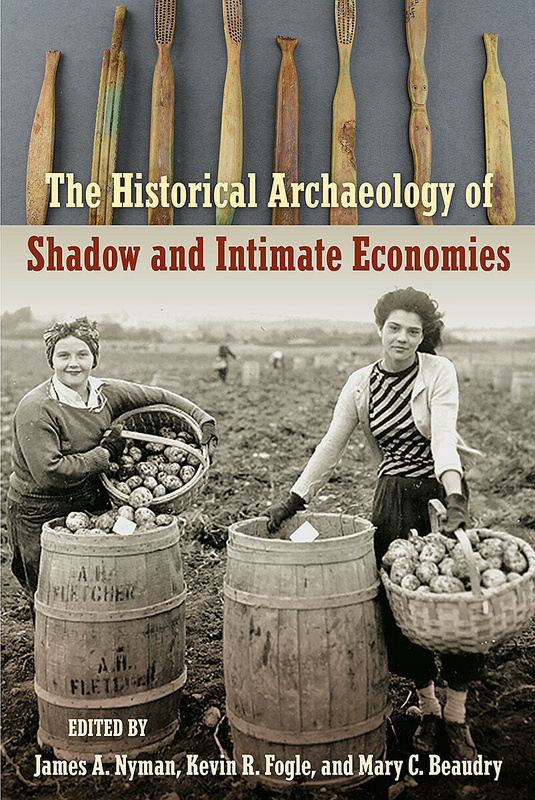
The Historical Archaeology of Shadow and Intimate Economies
Emphasizing the important social relationships that form among people who participate in small-scale economic transactions, contributors to this volume explore often-overlooked networks of intimate and shadow economies—terms used to describe trade that takes place outside formal market systems. Case studies from a variety of historical contexts around the world reveal the ways such transactions created community and identity, subverted class and power relations, and helped people adapt to new social realities. In Maine, woven baskets sold by Native American artisans to Euroamerican consumers supported Native strategies for cultural survival and agency. Alcohol exchanged by Scandinavian merchants for furs and skins enabled their indigenous trading partners to expand social webs that contested colonialism. Moonshine production in Appalachia was an integral part of economic exchanges in isolated mountain communities. Caribbean and American plantations contain evidence of interactions, exchanges, and attachments between enslaved communities and poor whites that defied established racial boundaries. From brothel workers in Boston to seal hunters in Antarctica, the examples in this volume show how historical archaeologists can use the concept of intimate economies to uncover deeply meaningful connections that exist beyond the traditional framework of global capitalism. Contributors: James A. Nyman | Mary C. Beaudry | Eleanor Conlin Casella | Jimena Cruz | Kevin R. Fogle | Kirk French | Heather Gibson | Marika Hyttinen | Titta Kallio-Seppä | Kenneth G. Kelly | Markku Kuorilehto | Ritva Kylli | Sami Lakomäki | Diana DiPaolo | Jade Luiz | Allison Manfra | Paul R. Mullins | Matthew C. Reilly | Melisa A. Salerno | Beverly A. Straube | Timo Ylimaunu | Andrés Zarankin
Makes a significant new scholarly contribution to historical archaeologies of exchange by foregrounding intimate and alternative economic systems and the connections they inspire without distancing them from the processes of capitalism and globalization in which they operated.’—Krysta Ryzewski, coeditor of Contemporary Archaeology and the City: Creativity, Ruination, and Political Action ‘Innovative and inspiring. Essential reading for historical archaeologists and others with an interest in intimate and informal economies.’—James Symon ds, coeditor of Historical Archaeologies of Cognition: Explorations into Faith, Hope and Charity
James A. Nyman is a professional archaeologist based in New England. Kevin R. Fogle is instructor of anthropology at the University of South Carolina. Mary C. Beaudry is professor of archaeology, anthropology, and gastronomy at Boston University. Together, they are the editors of Beyond the Walls: New Perspectives on the Archaeology of Historical Households.




